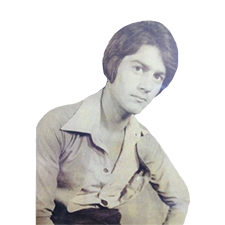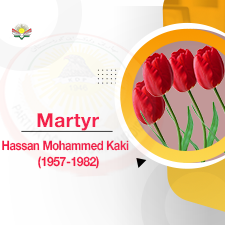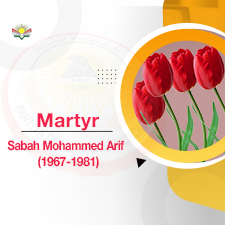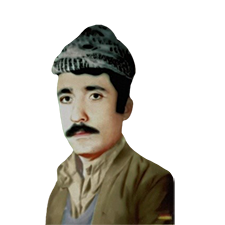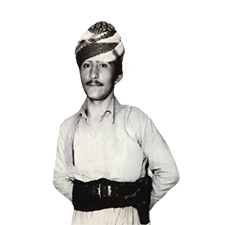Sabir Abdulkarim Mohammed, a Peshmerga fighter of the May Revolution. In 1978, within the village of Kani Zhanani situated in the Halabja province, an unfortunate event unfolded as he and his five companions became victims of a meticulously orchestrated strategy carried out by a PUK force.
Sabir Abdulkarim Mohammed, born in 1955 in the village of Pushtay in the Tagozi region of Halabja province, hailed from a rural background and was engaged in farming.
In 1976, he joined the ranks of the Peshmerga alongside Qadir Hamasaleh Tagozi, who held the position of commander in the sixth battalion's fourth branch within the Kurdistan Democratic Party (KDP) during the September Revolution.
In 1978, at the helm of a PUK force, arranged a strategic rendezvous with the Peshmergas of the Kurdistan Democratic Party (KDP). Notably, the meeting aimed to engage with renowned regional commander Qadir Hamasaleh Tagozi. Nevertheless, Qadir Hamasaleh Tagozi dispatched a Peshmerga unit led by his brother Aziz Hamasaleh, with Sabir Abdulkarim serving as a member of said unit. Following a discussion and dinner held at one of the residences in the village, the PDK detachment made the decision to remain in the village. However, during the late hours of the night, the PUK forces, which possessed a greater numerical advantage over the PDK detachment, arrived and attacked the Peshmerga units of the Kurdistan Democratic Party (KDP). As a result, Sabir Abdulkarim Mohammed, along with his five comrades Jaafar Mahdi, Mohammed Karim, Aziz Gulani, and Ibrahim Shamirani, tragically lost their lives as martyrs, while Ahmad Abdulrahman sustained severe injuries. Furthermore, Aziz Hamasaleh Tagoz was apprehended by PUK force.
Translate Content
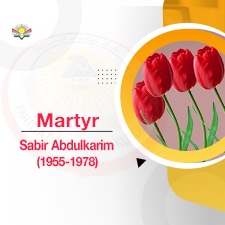
Sabir Abdulkarim Mohammed Abdulrahman
Sabir Abdulkarim Mohammed, a Peshmerga fighter of the May Revolution. In 1978, within the village of Kani Zhanani situated in the Halabja province, an unfortunate event unfolded as he and his five companions became victims of a meticulously orchestrated strategy carried out by a PUK force.




